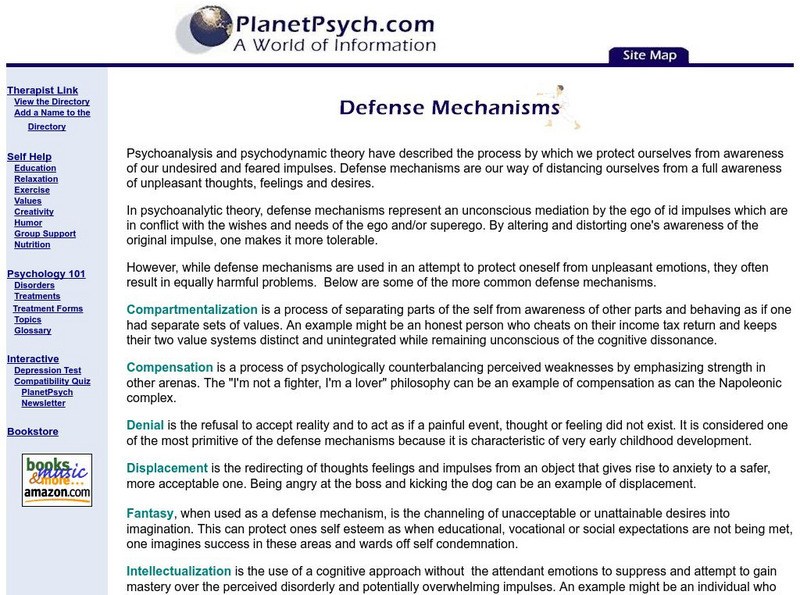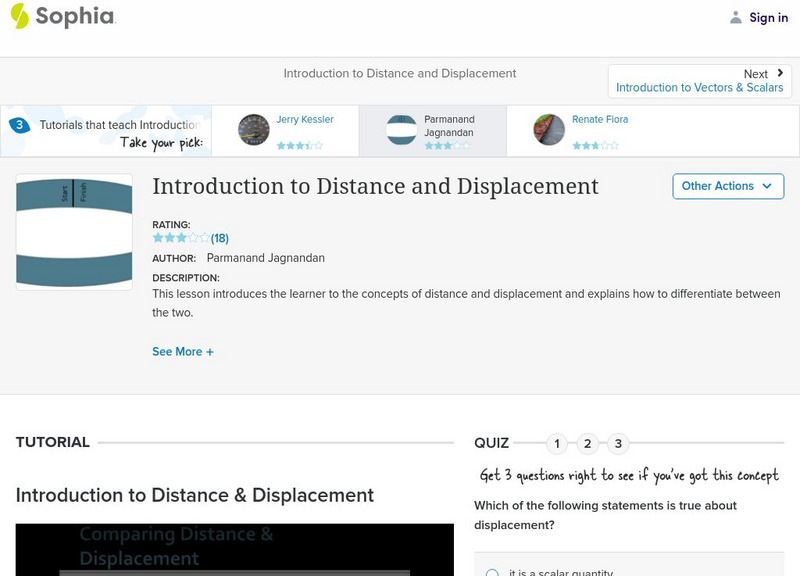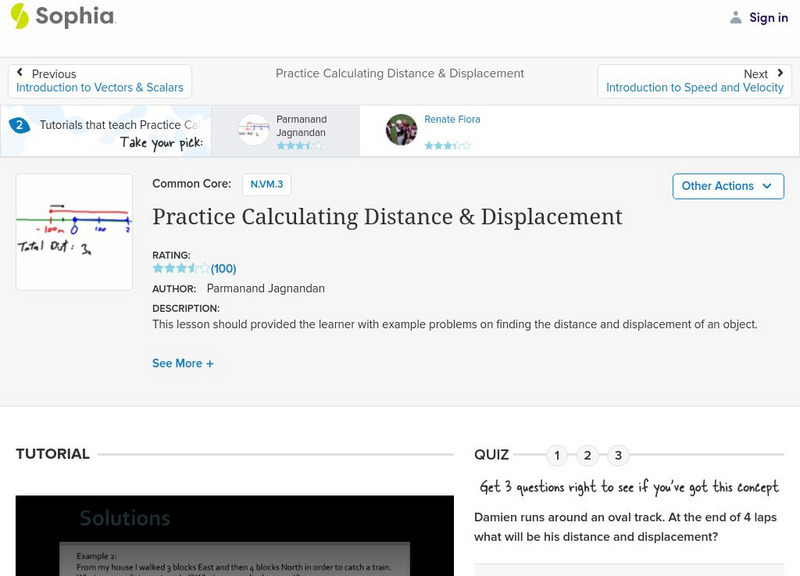Virginia Commonwealth University
Virginia Commonwealth Univ.: Work Definitions
This site from the Virginia Commonwealth University gives good information on the definition of work using nice graphics and interactive questions. Immediate feedback on student answers is provided.
Hunkins Experiments
Hunkin's Experiments: See if a Ring Is Pure Gold
Hunkin's Experiments is a group of simple cartoon illustrations of scientific principles. Some would work well in the classroom, but others have little value beyond entertaining students. All of the projects are easy to do. This one...
Science Education Resource Center at Carleton College
Serc: Mn Step: Will the Cup of Water Overflow When the Ice Melts?
Students predict and observe what happens when the ice cubes in a cup of water melt and displace water.
Other
Planet psych.com: Defense Mechanisms and Why We Use Them
Brief description of some of the most common defense mechanisms and short explanation of why people use them.
How Stuff Works
How Stuff Works: How Helium Balloons Work
This article explains how helium is able to keep balloons afloat in the air. Compares them to how hot air balloons work. Includes a video, and some activities to try for testing the principles being discussed.
Sophia Learning
Sophia: Introduction to Distance and Displacement: Lesson 3
This lesson introduces the learner to the concepts of distance and displacement and explains how to differentiate between the two. It is 3 of 3 in the series titled "Introduction to Distance and Displacement."
Sophia Learning
Sophia: Introduction to Distance and Displacement: Lesson 1
This lesson introduces the learner to the concepts of distance and displacement and explains how to differentiate between the two. It is 1 of 3 in the series titled "Introduction to Distance and Displacement."
Sophia Learning
Sophia: Practice Calculating Distance & Displacement: Lesson 1
This lesson should provided the learner with example problems on finding the distance and displacement of an object. It is 1 of 2 in the series titled "Practice Calculating Distance & Displacement."
Sophia Learning
Sophia: Volume and Mass
This lesson will describe the concepts of volume and mass and show how to calculate volume and mass.
Sophia Learning
Sophia: Work & Displacement
This lesson demonstrates how to calculate the displacement necessary to perform a specified amount of work.
TeachEngineering
Teach Engineering: Attack of the Raging River
In this lesson, the students will discover the relationship between an object's mass and the amount of space it takes up (its volume). The students will also learn about the concepts of displacement and density.
Oswego City School District
Oswego City School District: Speed and Velocity
This animated tutorial illustrates distance and displacement to define speed and velocity.
Department of Defense
Do Dea: Working With Parabolic Projectile Paths
Using the free-fall constants and gravity acceleration equations, we can determine many things about the position, velocity, and speed of a projectile. Here are a few examples and explanations. This is a great review for the AP Calculus...
Other
University of Winnipeg: The Simple Pendulum
The periodic motion of a pendulum is described with words and equations; little conceptual emphasis. Sample problems with solutions are provided.
Calculator Soup
Calculator Soup: Velocity Calculator
This velocity calculator uses the equation that the final velocity of an object is equal to its initial velocity added to its acceleration multiplied by time of travel. This calculator does assume constant acceleration during the time...











